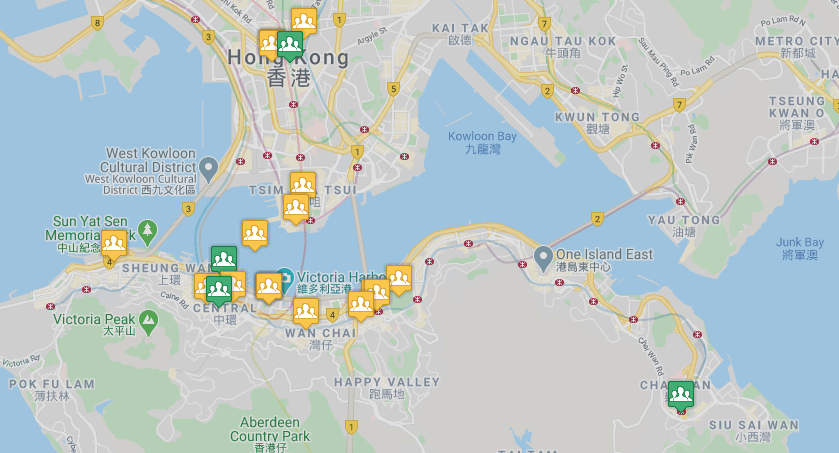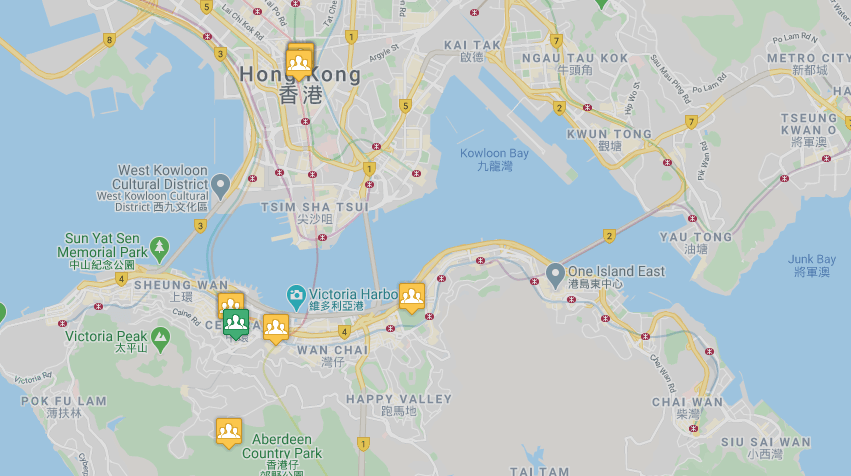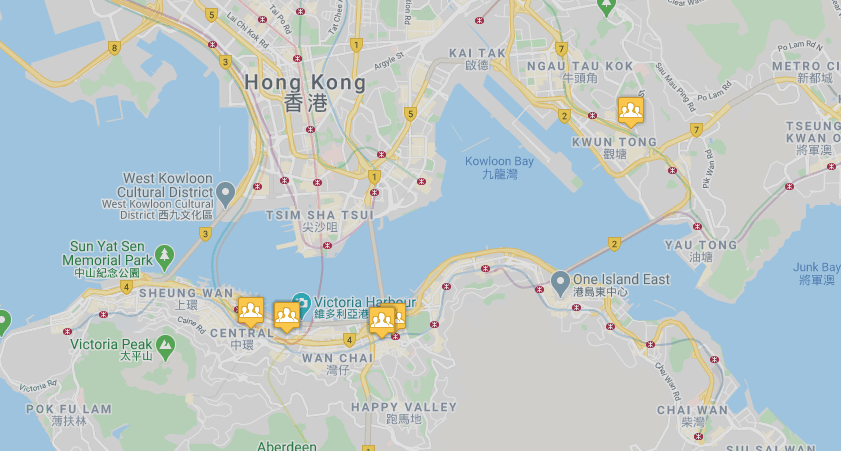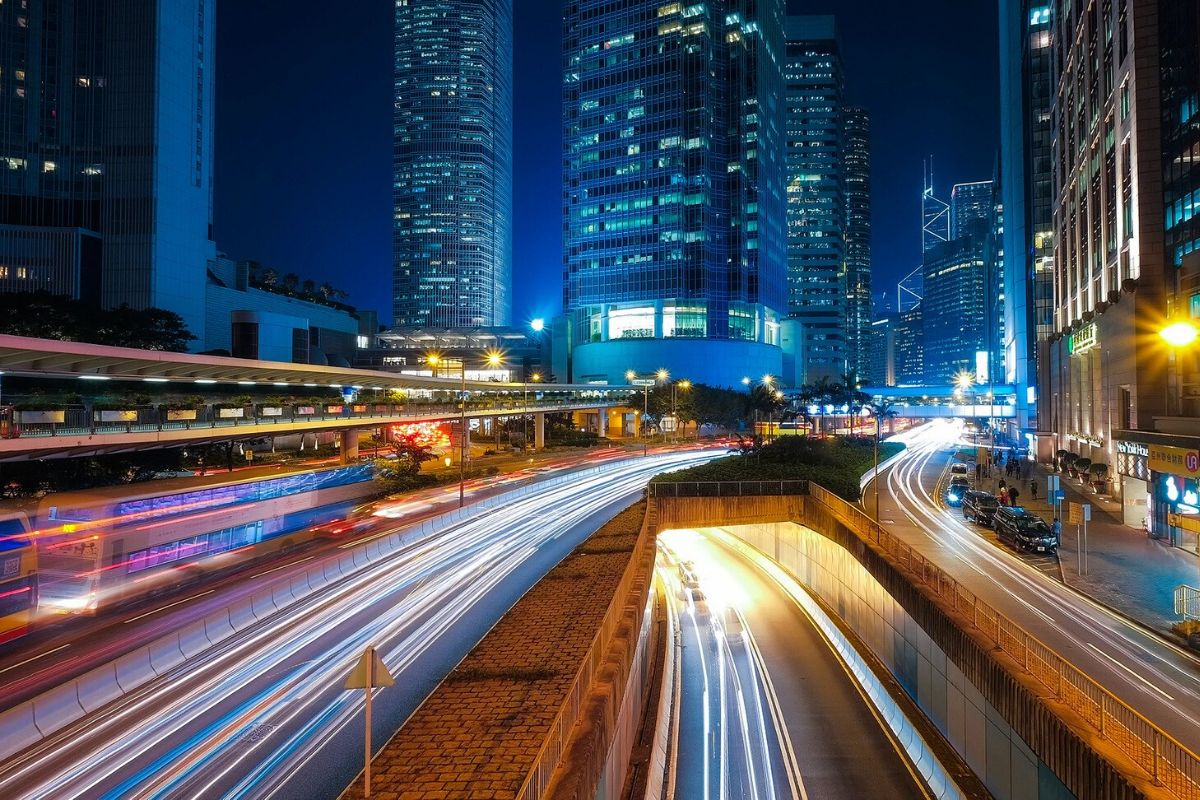Hong Kong and the effect of the implementation of the new security legislation that came into effect at 2300 hrs Local on 30 June 2020
Below are statistics taken from the Securewest Sphere system managed by the Global Response Centre (GRC) over a 4-month period, prior to the introduction of the new security legislation running up to the present day. The statistics show steady participation in demonstrations across March and April, then a rise in May when the introduction of the legislation was being discussed prior to its implementation at the end of June. During the first 25 days of July, there has been a decline in participation. This is most likely due to the harsh punishments that can be implemented if prosecuted under the new legislation.
- March – 28 incidents recorded (5 x Demonstration & Unrest)
- April – 20 incidents recorded (6 x Demonstration & Unrest)
- May – 34 incidents recorded (22 x Demonstration & Unrest)
- June – 30 incidents recorded (12 x Demonstration & Unrest)
- July (25 days) – 18 incidents recorded (9 x Demonstration & Unrest)
In summary, the legislation means the following:
- It introduces offences on the following areas –
- Secession
- Subversion
- Organisation and perpetration of terrorist activities
- Collusion with a foreign country
The law is aimed directly at anti-government protesters and their plans for continued disruption in the Hong Kong Special Administrative Region (SAR). The law does not only affect Hong Kong residents but also former residents that have taken other foreign passports, and the role of foreigners participating in or encouraging unrest in the SAR. It also allows the authorities to do the following –
- Beijing can seize control during certain security situations and during times of crises
- Detain suspects without bail
- Any trials that take place could be conducted behind closed doors with no oversight by the media or public
- Some cases may also be carried out on mainland China
Examples of activities that will fall subject to the new law include –
- Causing damage to government buildings and disrupting public transit are described as acts of subversion and terrorism – a measure directly aimed at anti-government protesters
- Beijing can seize control during certain security situations and during times of crises – Suspects in cases could be sent to face trial in mainland China
- The role of foreigners in Hong Kong’s unrest, the law allows harsh penalties to be imposed on any individual who engages with foreign countries to criticise or to impose sanctions on the government.
This means the authorities from the Chinese mainland could, in certain circumstances, detain individuals and impose a maximum sentence of life imprisonment. Under the new legislation, if you are a non-permanent resident, there is an increased risk of detention and deportation for any offences committed under the new law.
On 1 July 2020, amidst the heightened political tension and despite the fact that the demonstration had been banned by the authorities, protesters returned to the streets of Hong Kong to mark the 23rd anniversary of the territory’s return to China by the United Kingdom in 1997. The details of the security law were only due to come into effect overnight so protesters may not have been officially aware that they would already be contravening the new law by taking part in the protest.
- A total of 22 incidents in the month of May related to Demonstrations and Unrest.
Figure 1: Land incidents recorded by the Securewest Global Response Centre (GRC) 1-31 May 2020

- A total of 12 incidents in the month of June related to Demonstrations and Unrest.
Figure 2: Land incidents recorded by the Securewest Global Response Centre (GRC) 1-30 Jun 2020

- A total of 9 incidents in the month of July related to Demonstrations and Unrest.
Figure 3: Land incidents recorded by the Securewest Global Response Centre (GRC) 1-25 Jun 2020

Prosecutions under the new legislation
A number of prominent protestors have since spoken out that as a result of the new law it is the first time they have genuinely felt that they would definitely be arrested for speaking out, or for holding a banner or shouting a slogan and as a result has refrained from participating.
On 1 July 2020, it was reported that at least 10 people were arrested under the new legislation, including 1 individual who was displaying a Hong Kong Independence flag, a female that was holding a Hong Kong Independence sign and a 15-year-old girl also arrested for waving an independence flag. During the violent demonstrations, it was also reported that approximately a further 370 people were detained. The police had deployed tear gas, fired rubber bullets, and used water cannon to disperse the crowd. It is widely believed that the new legislation gives the police even more justification to use force and in the words of the demonstrators routinely carry out acts of brutality on demonstrators and even innocent passer-by caught up in the rallies and demonstrations.
The first prosecution under the new law was on 6 July 2020; Tong Ying-kit, aged 23, was charged with inciting secession and terrorist activities, he was also accused of using his motorcycle to ram a group of police officers injuring three. The accused appeared in court and was denied bail.
On 21 Jul 20, Police arrested several anti-government protesters on suspicion of violating the new security law in the Yoho shopping mall and in the vicinity of Yuen Long and Central rail stations. The demonstration was being held on the anniversary of the Yue Long attack. It was reported that 3 were arrested for obstructing the police from carrying out their duties and a further 79 were issued fines. The police later commented that the 3 arrested allegedly incited or abetted others to commit secession in breach of the new law.
Teachers are also feeling targeted by the new legislation, one arrested last year for joining a protest was informed in March that his contract was not be renewed. He believes that Beijing will use the law to tighten its grip over the education system that it blames for turning the youth into political protesters. Over the last year, more than 100 teachers and nearly 4000 students have been arrested.
Discord with the legislation
The United States, the United Kingdom, the European Union, Japan, Taiwan, Australia were all quick to condemn the action and fear for the future for all concerned in the Hong Kong SAR.
This law and a number of other political wrangling’s have caused an increase in tension across the globe and in particular between China and the United States. In recent days the closure of the US Consulate in the south-west city of Chengdu took place in response to the US closing the Chinese consulate in Houston in Texas.
The United Kingdom (UK) has drawn up a plan to allow Honk Kong nationals dual citizenship with the UK but this has been branded as a breach of International law by China. The UK has also extended its extradition treaty with Hong Kong, the USA, Canada, and Australia had already extended their arrangements with the SAR.
If you would like further information about Hong Kong or the services Securewest offer, please contact our team.
Published: 1 July, 2020
Updated: 27 July, 2020
